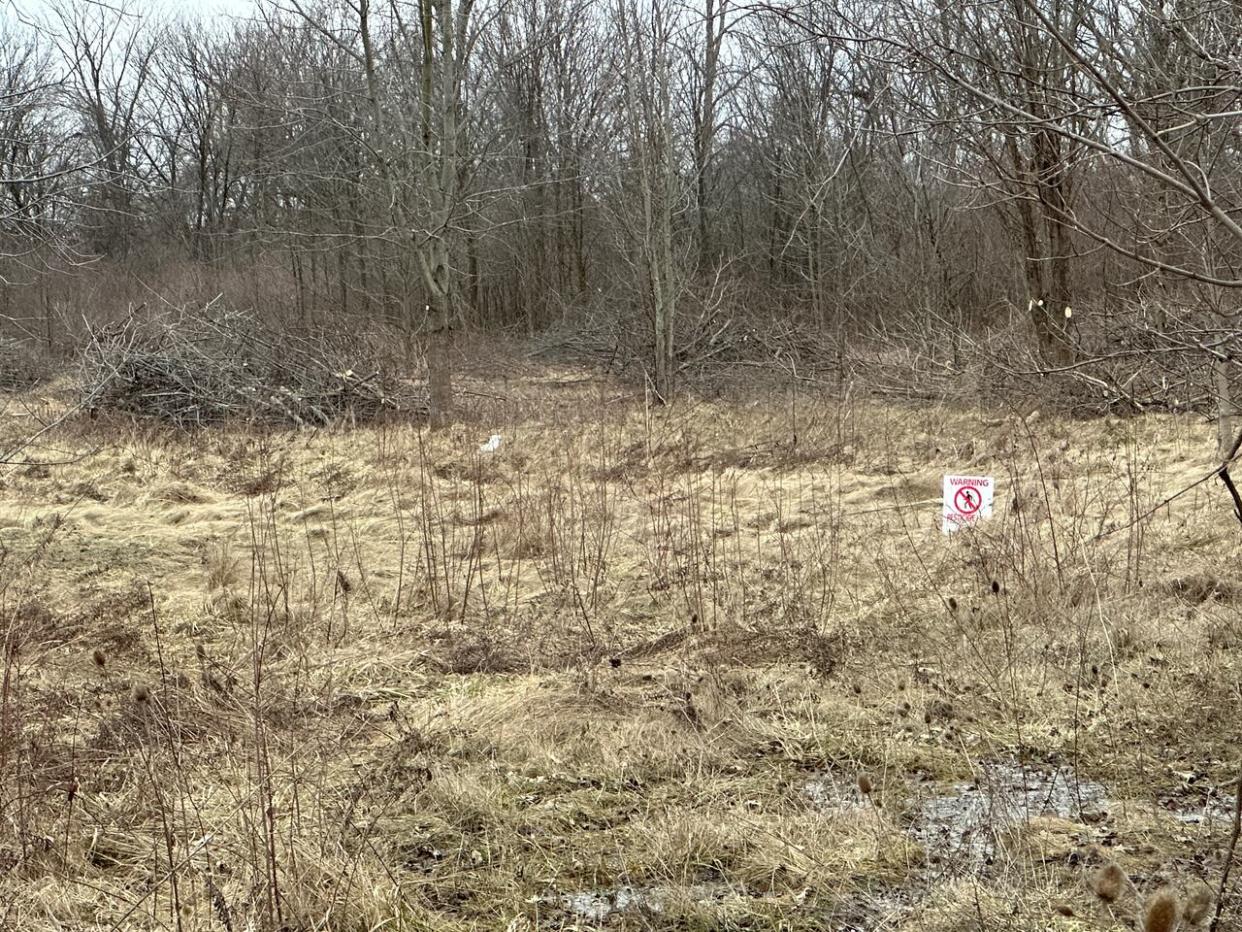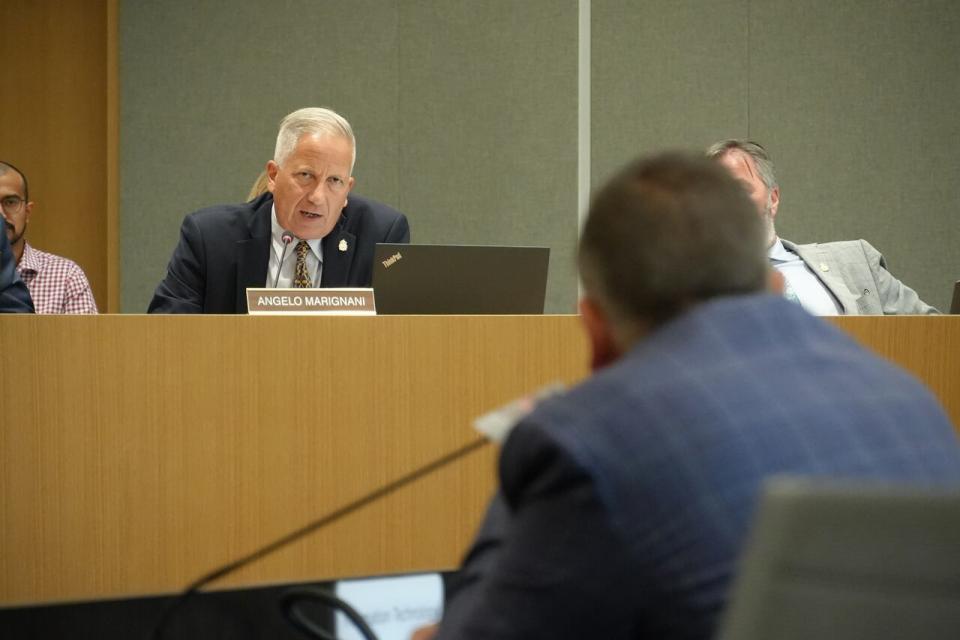Habitat loss due to NextStar battery plant prompts creation of new meadows to protect species at risk

The City of Windsor is doing some compensatory environmental work to make up for some of the habitat lost during the construction of the NextStar electric vehicle battery plant.
According to the provincial Endangered Species Act, the city must create new habitat for animal species at risk.
"Part of the process having that project is to also design a compensation program for the impact of that project," said city forester Yemi Adeyeye.
City workers are removing invasive species of trees and shrubs at Derwent Park in Forest Glade to create a meadow.
They are using pesticides, which raised concerns among some neighbours.
"It's not enough the area the buildings [apartments near Derwent Park] sit on was cleared to build these buildings, now even more trees are being cut down as close to the river as you can get! Even more disturbing is the sign that warns people of the use and presence of pesticides!," wrote Nancy Tomko in a letter to CBC.
She and others went to Ward 7 Coun. Angelo Marignani with concerns. Marignani said the pesticides are being used in accordance with proper protocols.
"They're following all the mandates and protocols of using those pesticides, specifically phragmites, which is a concern with us here in this area," said Marignani.
"We use herbicides with extreme care and we always follow the product label which clearly defines how the product can be applied in Ontario under the Ontario Pesticide Act," said City Naturalist Karen Alexander in a city email, adding they add the herbicide to the stumps after a tree or shrub is cut. She said not only is that a more effective way to kill the tree but it also prevents over spray that can contaminate water.
Adeyeye said they are also not using the pesticides when it is too wet in order to protect nearby water ways including Little River. He said the pesticides are needed or else the invasive species will grow back.
The Little River Enhancement Group also planted trees nearby along a drain near the E.C. Row Expressway as part of their 40th Anniversary. The city provided space and other resources, Alexander said.
Alexander also tells CBC News she can't identify the exact species at risk the meadows are being created for in order to protect the animals.
"For example, some species are sensitive to poaching for the pet trade," she said.
She went on to say that for the project, disclosure of target species and locations requires approval from the Ministry of Environment, Conservation and Parks (MECP).
But one of the requirements is to eventually include "species-specific educational signs," said Alexander.
"Once approved by MECP, these signs will be installed and the target species will be public knowledge," said Alexander.
Alexander said in addition to the meadow being created at Derwent Park, the city will also be creating habitat at McHugh Park and Little River Dragonfly Park in the Little River corridor.
She said the city is creating 5.17 hectares of meadow in all. The NextStar EV battery plant site spans 88 hectares, a significant portion of which was formerly farm land.

Ward 7 councilor Angelo Marignani appears in council chambers in a 2023 file photo. (Chris Ensing/CBC)
"It's good to see that there is that sort of comp corporate responsibility and that partnership being made with the City of Windsor and and the battery plant and all the other factories that are going to be located in that area. So there is that sort of partnership working together to improve the the natural habitats of our area," said Marignani.
Marignani said residents concerns have been mitigated after hearing that the trees being removed are invasive species and the pesticides aren't doing environmental damage.
Tomko said she is also relieved but is concerned about development along the Little River Corridor.

 Yahoo News
Yahoo News 
